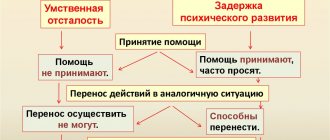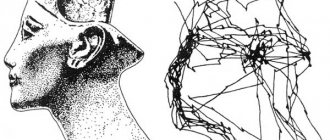Modern news is filled with reports of teenage suicides, religious suicides, acts of self-immolation, and suicide bombers. This has become a widespread phenomenon and a pressing problem for humanity. Back in the 18th century, such actions were shocking and were something out of the ordinary. But, starting from the 19th century, cases were recorded more and more often and began to grow at an alarming rate.
A huge number of people committed suicide in the middle of the 20th century, having survived two terrible world wars. And it was during these years that a new direction in psychotherapy was born, the main goal of which was to return the meaning of life to humanity. This is Viktor Frankl's logotherapy, which has saved thousands of lives and continues to do so to this day.
What it is
Logotherapy is a direction of existential psychotherapy based on the search for the meaning of one’s existence, which should become a powerful motivation in life. It was formalized as an independent doctrine in the middle of the 20th century. Austrian psychiatrist Viktor Frankl. The point is to direct your inner gaze to the outside world, distract yourself from your own suffering and realize your need, first of all, for other people, and not for yourself. Hence the name: “logos” translated from Greek means “meaning”.
According to this concept, all problems begin at the moment when a person focuses on his own experiences. By focusing on them, he inflates any little thing to a universal scale and makes himself unhappy by self-digging. The way out is to abstract yourself from them, look at yourself from the outside and see that everything is far from so bad, and there are people nearby who are several times worse and who need help and support.
This approach to solving personal problems helps those who are desperate, who have lost the meaning of life and are prone to suicide. It is believed that of all areas of psychiatry, logotherapy is one of the most effective practices for preventing suicide. It is also effective in treating phobias and obsessive-compulsive disorder.
Logotherapy in psychology is helping people for whom their own existence seems dreary, aimless vegetation. Apathy, depression, chronic fatigue syndrome, indifference are just a few of the problems that it can solve.
Self-transcendence
The search for meaning in life is not hopeless. It can be found, but to do this you will have to “go beyond your own Self” [2]. The more often a person gets out of his problems, tries to look at them and the surrounding reality objectively, the greater the chance of finding that same meaning. This phenomenon is called “self-transcendence”, it is the main condition for a quality life.
It is necessary to move away from the passive position of a victim of circumstances, allow yourself to take actions, and live actively. Creative activity is the basis of this activity. The more useful actions that are aimed at positively changing the surrounding reality a person performs, the faster he will come to awareness. At one point, the answer to the question of one’s own purpose will become obvious.
The point is to help. In the desire to make the cruel world a little better, albeit within the framework of one’s own environment. The meaning is in creativity, in creating beauty, in procreation and self-improvement. Everyone has their own meaning in life, it is unique and can sometimes be incomprehensible to others.
History of creation
The founder of logotherapy, Viktor Frankl (1905-1997) is a man of amazing destiny. Austrian psychiatrist, neurologist, psychologist. It is difficult to count how many people in his lifetime he saved from suicide and how many continue to get rid of these thoughts now, thanks to his teaching.
Initially, he was keen on the ideas of Sigmund Freud, but soon he not only moved away from them, but also opposed psychoanalysis to his direction. Before the war, for 10 years he implemented his own program to support students. During this time, there was not a single case of suicide among those with whom he worked, although this had previously been not uncommon.
Everything changed with the Nazis coming to power. Victor was prohibited from practicing medicine because of his Jewish origin. In 1942, he, along with his wife and parents, were deported to the Theresienstad concentration camp. It was there that Frankl's logotherapy took shape as an independent direction.
Victor noticed that all the camp prisoners were divided into two groups. Some were depressed, deeply unhappy, constantly suffering and often took their own lives, either throwing themselves onto the barbed wire fences or refusing to eat. Others, despite exactly the same conditions, tried to patiently endure all the hardships, ate in silence, worked just as silently and never complained.
Frankl began to secretly work with prisoners and conduct conversations. He concluded that the first group of prisoners had no reason to exist, while the second group tried to survive for some purpose. Some did this because their relatives were waiting for them in the wild. The second - because they wanted to finish an unfinished novel. For others, religion did not allow this. Everyone had their own motivation.
Based on his observations and conclusions, Viktor Frankl began to save those who could no longer endure the hardships of the concentration camp. He talked with them, convinced them, helped them find the meaning of life.
In 1944 he was transferred to the Dachau camp, where he was not allowed to practice or communicate with other prisoners. That same year he lost all his loved ones - his wife and mother were killed, his father died of illness.
In 1945 he was released. Literally immediately from his pen came the book “Saying YES to Life” about his stay in a concentration camp, which became famous all over the world.
For about 25 years, Frankl headed the Vienna Neurological Clinic, then taught at the University of Vienna and lectured at Harvard. He married second time. His daughter became a famous child psychologist. He traveled to many countries with seminars, including Russia. His books have been translated into more than 20 languages. Thousands of patients were grateful to him, whom he saved from depression and suicidal thoughts.
Can suffering lead to happiness?
Frankl argued that even obvious pain can serve for good. In his writings, he referred to stories from clients.
The story he especially liked to tell began with a completely unremarkable visit. The elderly man complained that even two years after the death of his wife, he could not come to terms with the loss. Frankl did not dwell on obvious truths, such as those that you need to find the strength to continue living.
Photo by Anastasia Shuraeva: Pexels
He waited until the man finished pouring out his soul and asked only one question: “How would your wife feel if you died instead of her?” The man replied that, of course, she would have been inconsolable and suffered greatly. Then Frankl said: “In that case, you saved her from this suffering because you are alive. Now you must pay for it with your own pain." The man thanked him, shook his hand and left.
Frankl did not save him from suffering; the feelings of another person are not in his power. But he helped him see the meaning of his pain in order to bear it easier. This can be compared to a difficult birth. Where the goal of suffering is the birth of a beautiful, beloved child.
Frankl's philosophy can be summarized as follows: life provides meaning, and it does not always equate to finding happiness. A person has all the resources to comprehend it on his own.
Concepts
Frankl took the ideas of existentialism as the conceptual foundations of his direction, namely:
- the teachings of Socrates, Aristotle and Epicurus, which helped people understand themselves through awareness of the essence of the world around them;
- the philosophy of Kierkegaard, Nietzsche, Heidegger, Sartre, Camus: life is a series of conflicts and suffering that lead to a rethinking of values and personal development;
- Husserl's phenomenology: suffering purifies a person;
- directly existentialism of Jaspers and Binswanger: the goal is to comprehend and change life, with full acceptance of responsibility for the choice of values;
- design analysis by Medard Boss: life is the present moment without looking back at the past.
These ideas, combined with the vast experience gained in the camp, served as the basis for logotherapy. In Russian psychology, the ideas of this direction are poorly represented, despite the fact that Frankl gave lectures and seminars in Russia.
Victor Frankl
The semantic sphere of personality development is partially revealed in the works of Vygotsky, Rubinstein, Leontyev, Petrenko, Artemyeva. Research in terms of meaning formation was carried out by Znakov, Asmolov, Agafonov, Chudnovsky, Karpova. Today the direction is actively developing. In particular, the Viktor Frankl Center operates in St. Petersburg, whose employees put his ideas into practice.
This area is much more developed in Europe. Frankl left behind students who now officially represent foreign concepts of logotherapy. This is Alexander Battiani, a professor at the University of Vienna, the Austrian Academy of Sciences, who oversees the work of the Frankl Center in St. Petersburg. As well as psychotherapists Alfried Längle and James Crumbo, PhD Elisabeth Lucas and Dr. Eleanor Frankl (Victor’s second wife).
Briefly about the origin of logotherapy
The history of the logotherapeutic approach dates back to the 30s of the last century. The foundations of logotherapy were first introduced in 1938 by the aforementioned Viktor Frankl, who developed them based on the individual psychology of Alfred Adler and the psychoanalysis of Sigmund Freud.
Currently, logotherapy, which is often called the “third Viennese school of psychotherapy,” is an empirically based and internationally recognized psychotherapeutic approach.
Indications
- Life crisis;
- family problems;
- depression or stress;
- causeless anxiety, panic attacks;
- addictions of various kinds: alcohol, drugs, gaming;
- obsessive-compulsive disorder;
- phobias;
- sleep problems;
- sexual dysfunction;
- life situations associated with incurable diseases, death of a loved one;
- dissatisfaction with oneself, boredom, apathy, indifference, disappointment.
Basic principles
According to logotherapy, human life acquires meaning only in three cases.
1. Activity, creativity, creation
When a person realizes his potential, wanting to leave a mark behind himself or simply help others free of charge. He becomes active. He becomes motivated: to finish the painting, achieve career growth, save as many stray animals as possible, etc.
Having achieved a goal, he sets a new one and starts all over again. This focus on the outside world leaves no room for exaggerating one’s own problems. They resolve themselves over time when the need arises.
2. New experiences, new sensations, new acquaintances
The same thing happens to people who are constantly enriched with something new. They want to read as many books as possible, visit as many places as possible, try extreme sports. This also includes love, friendship, family, when someone’s life becomes more important than your own.
On the one hand, this is done to satisfy personal needs, but the methods of implementation still lie outside the person and are aimed at the outside world. This prevents you from getting hung up on your internal conflicts and contradictions.
3. Suffering is the path to rethinking
If the first two paths to finding the meaning of life are not given to a person, only in this case does logotherapy allow one to turn inward. It is necessary to look at personal problems as if from the outside and subject them to logical analysis. Is there any meaning to your own suffering? What will they lead to? The answers to these questions become the beginning of a rethinking of life values.
Existential vacuum
Frankl wrote: “Each era gives rise to a special neurosis, and therefore the need for a special method of psychotherapy. In the era of Freud, sexual dissatisfaction was considered the cause of all troubles, but now we are worried about another problem - disappointment in life. If in Adler's time the typical patient suffered from an inferiority complex, today patients complain mainly of a feeling of inner emptiness that arises from a sense of the absolute meaninglessness of life. This is what I call an existential vacuum” [1, p. 5].
According to the scientist, the generation of the 2nd half of the twentieth century are people who have everything. They are well-fed and don’t have to think about survival. Physically, life has become simpler, however, this simplification has given the opportunity to ask questions, the answers to which sometimes take a lifetime to find.
The search for meaning is not a deviation from the norm; rather, on the contrary, it is a natural human need. According to Frankl's observations, 80% of alcoholics and 100% of drug addicts fall into the abyss of addiction from the suffering that is generated by the inability to find the meaning of life. Chaos reigns in the minds of addicted people. The emptiness that is its consequence is filled with the illusion of self-sufficiency and contentment. If a person does not receive satisfaction from real life, then dependence on chemicals is inevitable. Problems are not solved, they grow like a snowball, but an illusory understanding of reality, distorted under the influence of chemicals, forces a person not to notice them and pretend that everything is in order.
The quality of life of a person who is “swallowed up” by an existential vacuum decreases exponentially. Some of the alarm bells are general depression, apathy, and reluctance to lead an active, creative life.
Frankl introduced the concept of “weekend neurosis.” According to the scientist, it is on a day off that a person most often thinks about death and drowns out the inner emptiness with the help of means obtained from the outside (alcohol, psychotropic substances). If on weekdays your thoughts are busy with work matters, then on the weekend “suffering from the meaninglessness of life” manifests itself in full glory. By the way, Frankl notes that the weekend is the time when people most often think about death and suicide.
Basic Concepts
The essence of logotherapy
Free will is the ability to make choices not limited by circumstances.
The will to meaning is the primary motivation of man. And not physical pleasure at all, according to Freud’s ideas.
The meaning of life is the ultimate goal of human existence as a biological species and an individual, a key concept in logotherapy for the formation of the spiritual and moral image of the individual.
Difficult cases
Frustration is when a person doubts his choice and prioritization (according to logotherapy, it is not a mental illness).
Existential vacuum - loss of meaning in life, apathy, indifference, often occurs after frustration.
Noogenic neurosis is a consequence of an existential vacuum. Clinical diagnosis. It becomes the cause of depression, drug addiction, alcoholism, uncontrollable aggression, and suicidal obsessive thoughts.
Techniques
Logoanalysis (inventory) is an objective view from the outside at all aspects of one’s own personality.
Paradoxical intention is a contradictory attempt to do what you fear most.
Dereflection is the switching of attention from oneself to the surrounding world.
Life is like a series of unique opportunities for everyone
Values can be situational or eternal. The opportunity to accomplish situational value is unique for each moment. Every day life provides an opportunity to give situational values to the world around us and fill our own existence with meaning. To miss these opportunities is to miss the point.
Eternal values are impossible without situational ones. They are realized when an understanding of one’s own mission comes. Often this happens through suffering.
Logotherapy is designed to teach patients to treat every moment of their own life with reverence. That is why Frankl spoke out strongly against euthanasia and suicide. In his opinion, fate will not joke. Scientist about [3]. Therefore, the doctor does not have the moral right to take on the functions of fate. The conclusion about the hopelessness of a situation is always subjective, even if it is supported by completely objective facts.
Advantages and disadvantages
Pros:
- effectiveness in the treatment of depression, obsessive-compulsive disorder, phobias, addictions and suicidal tendencies;
- humanistic orientation (to the outside world, not to oneself);
- moral aspect (the sexual component of Freud's psychoanalysis is leveled);
- careful study of the concept, starting with ancient philosophers;
- not just philosophy and empirical reflection, but a way to actually save lives;
- long-lasting results: often eliminates phobias for life.
Minuses:
- does not help in severe clinical cases of personality disorders;
- few professional centers and logotherapists;
- involves the patient’s careful work on himself;
- some cases require long-term treatment (up to 1.5 years).
Paradoxical intention
This method has proven its effectiveness in the fight against fears and neuroses. They are characterized by introducing the patient into a vicious circle. The patient is afraid of certain situations and tries to avoid them, but this activity, in turn, gives rise to anxiety and new fears. As a result, neurosis intensifies, and the disease begins to progress and move to a new level.
Paradoxical intention plunges a person into a problem and gives him the opportunity to face his fears. This breaks the vicious circle, which in turn relieves the patient of anxiety and neurotic symptoms. The person himself changes his attitude to the situation, and consequently, behavioral stereotypes.
Methods and techniques
Logotherapy uses 3 main techniques for working with patients.
Logoanalysis
The author of the technique is one of Frankl’s students, American psychotherapist James Crumbo. He himself called it inventory.
A method of logical analysis of a person’s life, a detailed analysis of his values, teaching him to look at his inner self from the outside. Techniques used:
- expansion of the field of conscious knowledge;
- stimulating creativity.
The logotherapist tells the patient step by step how to act. The results obtained are discussed together. The full course of treatment is 1.5 years.
Paradoxical intention
The author of the technique is Viktor Frankl himself. Used to treat phobias and obsessive-compulsive disorder.
The technique involves a deliberate desire to want what a person is afraid of (in the case of phobias). Examples:
- for bromhydrophobia (fear of sweating) - try to sweat even more every time than before, to set a new record;
- for cynophobia (fear of dogs) - deliberately get yourself a pet;
- for thalassophobia (fear of the sea) - go on vacation to a seaside resort.
With the help of paradoxical intention, almost any phobia can be cured. There are real cases of recovery after just a week of active use of the technique.
Dereflexion
The author of the technique is Viktor Frankl.
It consists of completely disconnecting from your own experiences, forgetting about them, directing all your energy to the outside world. It is used in the treatment of narcissism, depression, neurosis and even sexual dysfunction. A person learns to gradually put into the background what bothers him, replacing him with thoughts about others.
For example, if self-esteem is high, the patient is asked to become a volunteer or do charity work.
For depression, group therapy is arranged, with the logotherapist acting only as a guide, not a leader: patients should deal with each other’s problems, but not their own.
In case of sexual dysfunction, it is proposed to focus on the partner, and not on one’s own discomfort and fiasco.
The specialist decides individually which methods of logotherapy to use in a particular case.
Slave to instinct, power-hungry or helmsman of the ship of Fate
The merit of traditional psychoanalysis is that it was able to isolate and structure the deterministic nature of certain mental processes.
But, considering the psychological phenomenon of man only as a product of his instincts, psychoanalysis was forced to recognize the predestination of human life as a final and unquestionable truth. And not just admit, but also conclude: our psychological reactions are nothing more than the result of the work of these structured and predictable instinctive mechanisms. The main danger of the psychoanalytic concept of Sigmund Freud, which assigns a person the passive role of a slave to instincts, is that sooner or later it inevitably leads to fatalism. That is why, Frankl notes, the vast majority of neurotic patients are united by blind faith in the “sword of Damocles of Fate.” He categorically rejects Freud’s concept, which categorically classifies geniuses as sexual deviants, quoting him himself: “Sometimes a cigar can remain an ordinary cigar and nothing more.”
Agreeing with Freud that a person’s life path as a whole is predetermined, Viktor Frankl, at the same time, makes the most important reservation: our instincts are nothing more than proposals for choosing one or another form of behavior, and the final decision is what to do with these proposals remains with us. It is this, our Self, that freely shapes our attitude to what is happening. And the emotional shade in which this happening will be painted directly determines whether our life will turn into an endless, meaningless struggle and torture or will be filled with meaning and vivid experiences even against the backdrop of events that are tragic for us.
A person, Frankl is sure, acts as a subject of desire: “I want,” and not as a blind toy of fate. And it is precisely this decision-making algorithm, in his opinion, that always works, regardless of what the sum of unconscious impulses is pushing us to at the current moment. Thus, the ego is eternally opposed to the instincts that reflect the aspirations of the unconscious id. Needing their energy, our I, at the same time, never remains passively carried away by them.
The will to meaning in Frankl's understanding is opposed to both the Adlerian concept of a person's desire for self-affirmation, superiority and power, compensating for an inferiority complex, and the principle of the pursuit of pleasure - the quintessence of Freudian psychoanalysis. Viktor Frankl’s concept of the pursuit of meaning is a fundamental “motivator” of a person, encouraging him not to seek comfort, but to meaningfully move towards some goal that the person considers worthy of himself.
“Sailing does not mean leaving the ship to the will of the wind. On the contrary, a skilled helmsman, using sails and wind, will be able not only to direct the ship in the desired direction, but also to provide it with maximum speed,” Frankl liked to repeat.
Application in practice
When working with children
Logotherapy is quite applicable at an early age, starting in kindergarten. Specialists work with children who are withdrawn, apathetic, uninterested in anything, as well as those who have experienced the death of one of their parents. Depending on the situation, different methods are used.
- Verbalization of experiences
Little children are not able to reflect deeply and look at themselves from the outside. Therefore, logoanalysis is built in a different way - through toys or a fictional fairy-tale character. The specialist tells the child a story that is as similar as possible to his, which supposedly happened to a baby elephant (for example). Then a dialogue is built about how the baby elephant feels, how he should behave and how he can be helped.
- Free Word Associations
A diagnostic technique used in logotherapy that allows one to understand how a child’s relationships with parents, educators and other children are built.
When working with problem children, logotherapists also actively use various art techniques: drawing, modeling, fairy tale therapy.
When working with teenagers
Many psychotherapists believe that logotherapy is one of the most effective areas for treating adolescent suicidal tendencies. Deviant behavior is the result of the decay of moral ideals in society. Therefore, dereflection is actively used here, aimed at the formation of meaningful life orientations and one’s own values.
Help in understanding the meaning of life has a beneficial effect on mental health. After a course of treatment, teenagers begin to understand how harmful and destructive alcohol and drugs are. They try to consciously choose their moral ideals, without looking back at existing idols.
Not long ago, a new subdirection was created, which was called “LogoArt Therapy”. Her goal is to help teenagers find themselves in this life and realize their creative potential.








